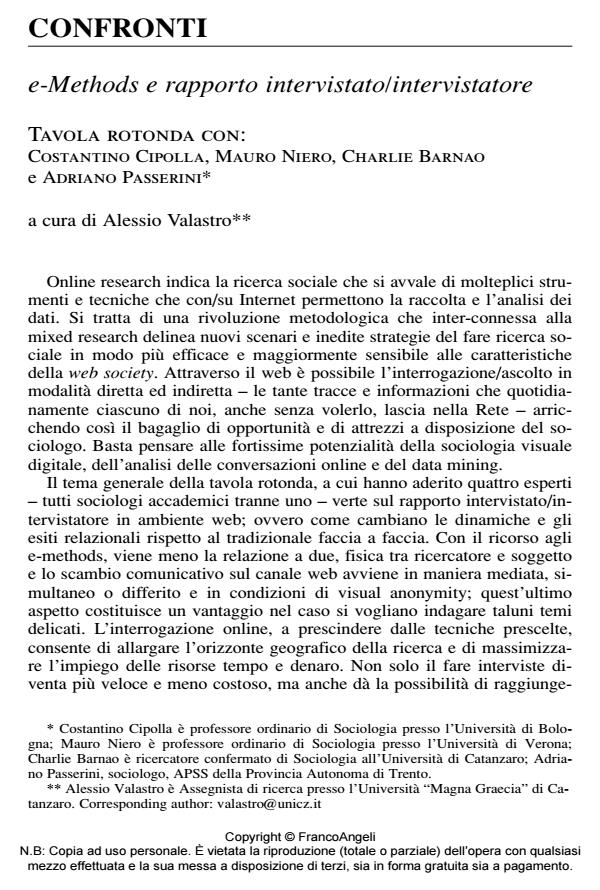E-Methods e rapporto intervistato/intervistatore
Journal title SALUTE E SOCIETÀ
Author/s Alessio Valastro, Costantino Cipolla, Mauro Niero, Charlie Barnao, Adriano Passerini
Publishing Year 2014 Issue 2014/3
Language Italian Pages 12 P. 91-102 File size 513 KB
DOI 10.3280/SES2014-003007
DOI is like a bar code for intellectual property: to have more infomation
click here
Below, you can see the article first page
If you want to buy this article in PDF format, you can do it, following the instructions to buy download credits

FrancoAngeli is member of Publishers International Linking Association, Inc (PILA), a not-for-profit association which run the CrossRef service enabling links to and from online scholarly content.
Alessio Valastro, Costantino Cipolla, Mauro Niero, Charlie Barnao, Adriano Passerini, E-Methods e rapporto intervistato/intervistatore in "SALUTE E SOCIETÀ" 3/2014, pp 91-102, DOI: 10.3280/SES2014-003007